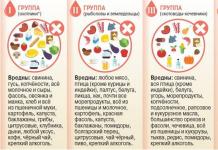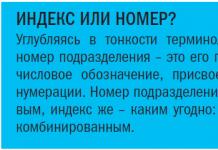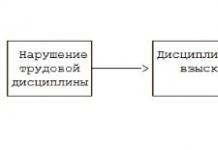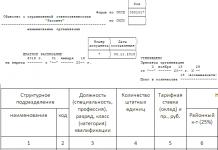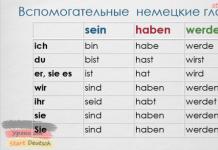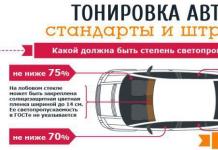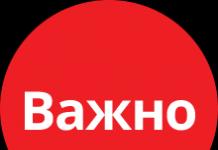The choice of antivirus should always be treated with great responsibility, because the security of your computer and confidential data depends on it. To fully protect the system, it is no longer necessary to buy a paid antivirus, since free counterparts quite successfully cope with the tasks. Let's compare the main features of Avira Free Antivirus and Avast Free Antivirus to determine the best one.
Both of the above applications have a cult status among antivirus programs. The German antivirus Avira is the world's first mass-produced free program to protect computers from malicious code and malicious actions. The Czech program Avast, in turn, is by far the most popular free antivirus in the world.
Of course, the assessment of the interface is a very subjective matter. Nevertheless, objective criteria can be found in evaluating appearance.
The Avira antivirus interface has remained unchanged for many years. It looks somewhat ascetic and old-fashioned.

In contrast, Avast is constantly experimenting with the visual shell. In the latest version of Avast Free Antivirus, it is maximally adapted to work on the latest Windows 8 and Windows 10 operating systems. In addition, managing Avast, thanks to the drop-down menu, is quite convenient.

So, regarding the evaluation of the interface, preference should be given to the Czech antivirus.
Avira 0:1 Avast
Virus Protection
It is believed that Avira has somewhat more reliable virus protection than Avast, although it also sometimes allows malware to enter the system. At the same time, Avira has a very high number of false positives, which is not much better than a missed virus.


Let's still give a point to Avira, as a more reliable program, although in this regard the gap from Avast is minimal.
Avira 1:1 Avast
Areas of protection
Avast Free Antivirus protects your computer's file system, email, and Internet connection using special screen services.

Avira Free Antivirus has a real-time file system protection service and surfing the Internet, using the built-in Windows firewall. But email protection is available only in the paid version of Avira.

Avira 1:2 Avast
If in the normal state, Avira antivirus does not load the system too much, then by performing a scan, it literally sucks all the juices out of the operating system and the central processor. As you can see, according to the indications of the task manager, the main Avira process during scanning takes on a fairly large percentage of the system's capacity. But besides it, there are three more auxiliary processes.

Unlike Avira, Avast antivirus almost does not strain the system even when scanning. As you can see, it takes up 17 times less RAM than the main Avira process, and loads the CPU 6 times less.

Avira 1:3 Avast
Additional Tools
Avast and Avira free antiviruses have a number of additional tools that provide more reliable system protection. These include browser add-ons, native browsers, anonymizers, and other elements. But it should be noted that if in Avast there are flaws in some of these tools, then for Avira everything works more holistically and organically.
In addition, it should be said that Avast has all additional tools installed by default. And since most users rarely pay attention to the subtleties of installation, elements that are completely unnecessary for a particular person can be installed in the system along with the main antivirus.
But Avira took a completely different approach. In it, if necessary, the user can install a specific application individually. He installs only the tools he really needs. This developer approach is preferred as it is less intrusive.


Thus, according to the criterion of the policy of providing additional tools, Avira antivirus wins.
Avira 2:3 Avast
However, the overall victory in the rivalry between the two antiviruses remains with Avast. Despite the fact that Avira has a slight advantage in such a fundamental criterion as the reliability of protection against viruses, the gap in this indicator from Avast is so insignificant that it cannot drastically affect the general state of affairs.
Ivan | August 2, 2014, 14:03
Read - http://www.anti-malware.ru/compare/compare_free_antivirus_2013
Nikita Vatrushkin| May 21, 2014, 22:57
According to data from the Internet, Avast Free is a more serious antivirus, and free Avira, according to modern concepts of antivirus programs, is primitive. But Avast really spoils the software, including the OS installed on the computer, and without demand. I didn’t find an option in Avast so that I don’t even feel the software that has already been installed and has been working normally for years, on the contrary, it arbitrarily moves files to quarantine, which in some cases damages programs and it becomes necessary to reinstall them.
Alex | May 21, 2014, 02:13
There was an experience of use of both antiviruses. Avast is very good for a free program. Avira - sieve.
Yuri | March 28, 2014, 19:58
All free antiviruses work without any guarantee and quality. Free cheese is in a mousetrap, and the full cost of Kaspersky in terms of a month of use will not ruin you: 80 rubles - for two computers. But the guaranteed quality of work, proprietary technical support and constant updating. I tried Avira at work - complete junk, skips viruses, does not update, constantly turns off and completely cuts down the computer several times almost daily.
Andrey | December 8, 2013, 20:22
Avira rules! There was Avira, then put Avast - horror. Games slow down. Deleted Avast and got my Avira back. Better Avira!
Alexander | April 1, 2012, 18:41
I have been using Avira for a long time, and then a friend asked me to install Avast, she praised it very much. I decided to put myself too. I had enough nerves for a month, the car slows down, I gored the launch in the sandbox. I returned to Avira, only paired it with Ad-Aware Free Internet Security.
Eugene | March 30, 2012, 22:27
There is also a free alternative in Russian to a paid one. This is the BitDiskFree program, it can be used as a reserve parachute in conjunction with another antivirus product.
Alexander | March 26, 2012, 09:59
In conjunction with, the choice of antivirus will not be fundamental.
Eugene | March 23, 2012, 19:37
After analyzing the open media on this subject (SOFT forums, computer magazines, computer sites), here is the result of testing free antivirus products for 2011-2012:
- AVAST - 99.05% detection and neutralization of all threats.
- AVG - 91-85.53%.
- Microsoft Security - 72.74%.
- MalwareBytes - 64.7-78%.
- AVIRA - took one of the last places in testing...
P.S: The best is now considered free, configured for maximum security, American (it has Russian) COMODO Internet Security. It almost caught up with Kaspersky - under 100% (the result is 99.98%).
Sources:
www.computerbild.ru
www.comss.ru
www.anti-malwart.ru
www.softodrom.ru
www.softportal.com etc.
Nicholas| March 22, 2012, 00:18
The choice is only yours, since it makes no sense to advocate for any one of them, due to the fact that the main antivirus should be in the user's head. Avast is more popular, and while Selev doesn't really like it, it still works quite well. Yes, and it is removed quite simply - either with regular Windows tools, or you can simply run the Avast installer, and choose what you want to do in the installation menu (install, change or remove the program). So don't worry too much...
Many security software developers release free antiviruses. Even ZAO Kaspersky Lab presented a free version - Kaspersky Free. How many basic functions are enough to prevent infection in real conditions - for example, when surfing the web? What do you pay for free cheese? Let's find out.
Test Methodology
We provided the most identical conditions for all participants in the experiment. Using VirtualBox, a test system was created - a virtual machine with a clean Windows 7 OS in the "Maximum" edition with the first service pack and all updates. Then it was cloned three times and only one antivirus was installed in each of the clones. The analysis of changes and current activity was carried out by portable software (TCPView, Autoruns with the VirusTotal plugin via API, ProcessExplorer, Regshot, AVZ and other utilities from the system administrator's first aid kit).
Threat sources were sites from the Clean MX database that were marked as infected and/or potentially dangerous. Only active sites added in the last 24 hours were selected for the test. We visited them in turn through the IE browser and logged the results of antivirus operation (if any). During the test, the antivirus and firewall on the host system were disabled.
All tests were run at default settings. Any free antivirus only reduces the likelihood of infection, but does not completely eliminate it. To improve security, you should use more aggressive settings and additional tools - a firewall, proactive protection tools, isolation of potentially dangerous code, anti-phishing, and others. In paid antiviruses, most of them are already integrated, but if you wish, you can make a similar set of free utilities yourself.
Like any software, virtual machine managers also contain bugs. Using various vulnerabilities, malware can go beyond the test system and infect the main operating system. Be careful!
1 kaspersky free
The size of the distribution kit version 16.0.1.445 is 147.8 MB. After installation and updating, Kaspersky Free occupies 232 MB on the disk. It provides basic protection that includes a virus scanner, resident monitor, automatic updates, quarantine management and report viewers. Additional features are marked as inactive - this is a kind of advertisement for the full version of KIS and KTS.
At the first start, a full-sized window appears on the main page of the antivirus with a registration offer. You can click on the inconspicuous gear button in the lower left corner and it will disappear. True, then a reminder of registration will constantly appear again in the form of pop-up messages. Additionally, at the first start in the default browser, the Google Play store page opens with a suggestion to install Kaspersky Internet Security, and Kaspersky Protection Toolbar is built into the browser itself. It is impossible to refuse its integration at the installation stage - there are simply no settings in the installer. However, the toolbar can be deactivated using the browser itself.
In our test, Kaspersky Free did not miss a single real threat. Some malicious sites were blocked by the Microsoft SmartScreen filter, while access to others was blocked by the antivirus. Sometimes they worked at the same time.
However, the antivirus is not tough enough to prevent the user from “shooting himself in the foot”. If you select a potentially dangerous executable previously blocked by smartscreen in the list of downloads and force it to run, Kaspersky Free will allow you to do this with Buddhist indifference. It allows the installation of a program with an invalid digital signature, which 17 antiviruses of the VirusTotal online scanner swear at.
Moreover, Kaspersky itself recognizes it on VirusTotal as Downloader.Win32.Bundl.aq , but ignores it when checking locally with the free version. Even though this is not a virus, but a means of delivering a "combat load", this does not make it any easier for the user.
2 Avira Free Antivirus 2016
Avira Free Antivirus also has limited functionality and rather annoyingly advertises the transition to a paid version. Advertisements for various Avira products are pouring in like a cornucopia even during installation by the web installer. That's probably why it was so damn long. Tired of watching the progress indicator, I managed to finish another article.
After installation, Avira took up 1329 MB including the databases, with only half of this space being in the \Program Files\Avira\ directory. The rest was in \ProgramData\Avira and other places. Avira Free includes a software firewall (which is rare for free antiviruses), but its presence does not explain such high appetites for disk space.
The interface itself is also amazing. The entire installation is displayed in Russian. After clicking on the tray icon, the language turns into Russian-English, and in the main window it becomes just English. It does not matter, but it is strange to see such a superficial localization.
The executable file from Downloader.Win32.Bundl.aq antivirus allowed to download. When forced to run it, a message appeared that the file was being analyzed by Avira. A few seconds later, he was rashly declared safe.
Upon detecting a malicious java script, Avira displayed a warning. By chance, it coincided with the design of the site and looked like part of it - an inexperienced user may not notice.

After clicking Remove, the script was blocked and the redirect to the phishing page did not occur. Avira then immediately ran a quick system scan - I think this is a justified additional measure.
Avira didn't notice the ZIP-packed malware at first either, only detecting it after manually unpacking the archive.
After forcing download of an executable file blocked by smart screen, Avira determined that it belongs to the PUA (Potentially Unwanted Programs) category.
When trying to access a page containing multiple exploits, Avira immediately displays a warning, but allows the content to be loaded. In this case, no infection occurs.
Just like Kaspersky Free, sometimes Avira antivirus worked together with the SmartScreen filter.
3AVG Antivirus Free Edition
Czech antivirus AVG has undergone significant changes since last fall. Now it is actually a utility for collecting user data with some anti-virus functionality. On disk, AVG Free takes up 192 MB, but this figure increases rapidly as data is cached and sent to the company's servers. According to the official version, this is done for cloud-based scanning and analysis of suspicious files. That's just what can be suspected of a clean OS, where, in addition to the AVG Free antivirus, there are no third-party applications and user files?
The installation itself is fast and almost ad-free, but there is a catch in the installer. At the next stage, it proposes to install a 30-day trial version of a paid antivirus instead of the initially selected free one. You must manually select AVG Free and continue with the installation.
Immediately after installing AVG Free, a pop-up window prompts you to install the AVG SafeGuard by Ask toolbar and make Ask the default search engine, and a page with an advertisement for the AVG application for Android opens in the browser.
A potentially dangerous executable that was ignored by Kaspersky Free was blocked by AVG while trying to download it. Fool-proof worked clearly better.
Another malicious AVG executable allowed the download and only then recognized it as a threat.
At the same time, malicious files in the ZIP archive were detected by AVG only after manual unpacking of the archive.
Web pages often contain malicious Java scripts that try to redirect the user to another page or infect their computer. AVG detects them and displays a blocking request, but after the message “threat successfully removed”, it still redirects to a phishing site, which is already blocked by SmartScreen ... if you're lucky.
Sometimes several threats are found on sites at once. In this case, AVG shows summary information and usually prompts you to select the desired action. Sometimes it disables all items by itself. In this case, no action is required - you can only view the description of the infection found.
One of the web pages considered infected by six antiviruses on VirusTotal was ignored by AVG. He discovered the infection only when it was on the hard drive and was trying to activate.
4 Avast! Free Antivirus (11.1.2245)
When installing Avast! you also need to be careful: by default, the installation of Google Chrome and Google Toolbar for IE is checked. After installation without additional components, the antivirus takes up 604 MB - a lot, but half as much as Avira Free.
Hidden advertising is full even in the main window of the antivirus. The promised gift turns out to be a formal discount on paid products. The "Tools" tab contains not additional protection modules, but advertising links to their descriptions. It is worth clicking one of them, as the offer to choose the option of additional paid protection will settle in the main Avast window for a long time.
When trying to manually launch a blocked MSS executable by Avast! We don't meet any resistance. A potentially dangerous file (downloader) with an invalid signature is ignored by the antivirus.
Malicious java script and exploits Avast! blocks immediately, while infected web pages are not loaded at all. However, the message about detected threats does not look informative - it is the same for different malware and does not even allow us to judge their number.
Archive with malware Avast! allowed to download, but checked it myself and immediately found the threat - even before I tried to look at the list of downloads.
Another executable file that is detected by VirusTotal as malicious by 34 antiviruses, Avast! ignored. He silently allowed it to be downloaded and forced to run, bypassing the MSS block.
Big Brother footprints
With the filing of Microsoft, which released "", the practice of open surveillance of users is becoming generally accepted among soft makers. It is directly indicated in the user agreement, but who reads it? For example, for Avira, this item looks like this:
“We may collect, store and use data that can identify you, your device (as defined below) and your device’s interactions with other devices (e.g. device ID, device IP address, location, content, language preferences, IMEI code devices, device brand and model, battery status, device OS version, device phone number, SIM number, network provider name, memory status, geo-information based on GPS/Wi-Fi/network location and any other technical information… Some of the this information may be used to identify you, including, without limitation: name, address, phone number, email address, social security number, credit card information, facial image, voice pattern, or biometric data (collectively, "Personal Information") and may include data stored on your device We may also transfer your personal information to other countries where the equipment is located providers of our product".
Other developers have slightly different formulations, but the general principle remains the same. They collect all the data that is technically possible to obtain. Since the antivirus is deeply integrated into the OS, installs its own drivers and intercepts system calls, it has access to all information - including encrypted information, since the user himself decrypted it at least once.
Against this background, the statement of Evgeny Kaspersky, which he made announcing the release of a free antivirus named after himself, is encouraging:
However, even here it is not without a share of slyness. Kaspersky Free itself collects only general depersonalized statistics, such as the number of threats found by type. However, it includes the Kaspersky Security Network cloud service by default, and KSN is known for its appetite for information gathering. Detailed logs are sent to it, which include a list of installed programs along with paths, detailed monitoring of user activity, lists of running processes, application usage statistics and other private data. You can turn it off on the corresponding tab.
conclusions
As you can see from this small experiment, all free antiviruses reacted to the same threats a little differently. Some were blocking the link by displaying a warning early on. Others did not allow the infected file to be downloaded or prevented the launch of a malicious script, while others reacted only to the local launch of the malware or skipped it altogether. The point here is not that a paid antivirus is better than a free one from the same developer - they have the same engine and databases. It's just that the paid versions use additional protection modules, thanks to which threats are recognized and blocked not only by signature analysis.
Kaspersky Free as a whole did not cause significant complaints. It is very similar to a stripped-down KIS, which removed optional components and foolproofing, adding ads and hiding KSN deeper.
Avira distinguished itself by a monstrously long installation and gluttony. She occupied the most space, and the computer with her noticeably slowed down on elementary operations. It practically does not work with archives. In any case, it does not check those downloaded from the Internet before they are manually unpacked.
Avast! ignored a couple of serious threats (one is enough for the user) and is also replete with cunning advertising. It immediately blocks detected malware, but it is impossible to understand what happened without a detailed analysis of the log. Antivirus messages look the same and do not imply a choice on the part of the user - usually they are just notifications about the decision made.
AVG generally looks adequate, but the company's user data policy leaves much to be desired. If not for the ultimatum about collecting information, it could be recommended as a good free antivirus.
, September 30, 2016Avast Software CEO Vincent Steckler announces the completion of the acquisition of a majority stake in AVG Technologies.
In July, we announced our intention to acquire a majority stake in AVG Technologies. And today I am pleased to announce the completion of this process. From Monday, October 3, 2016, we will start working as a single company. I would like to warmly welcome the AVG team, their customers and partners. I would like to tell you a little about our plans for the next few months.
For nearly 30 years, AVG and Avast have grown side by side, providing great products for free to hundreds of millions of users around the world. Our similarity will allow the process of merging companies to proceed smoothly and without difficulties. At this stage, we will develop products under both brands.
What do we gain by acquiring AVG?
Now we provide unparalleled protection to our customers. This was made possible by expanding our base to more than 400 million users worldwide, of which 160 million are consumers of mobile security solutions. With an almost doubling of the user base, we have the world's most advanced online threat detection network. Our security technology is mostly in the cloud and based on an advanced machine learning network. Each of our end users plays the role of a kind of sensor for malicious files and activities. In case of detection of new suspicious files for us, they are sent to our cloud servers for careful consideration, and, if necessary, running in a virtual machine, automatic machine analysis and other proprietary research. Our artificial intelligence technology determines if an unknown file found is malicious. In case of a positive response, this information is transmitted to our server, and, further, more than 400 million users around the world will be protected from this threat by receiving virus definition database updates almost immediately.
One person who receives this file protects everyone else. Thanks to each of you, we receive valuable information about current online threats and provide better protection for other users. Together with AVG, we prevent nearly a billion virus attacks, block more than 500 million malicious URLs and repel about 50 million phishing attacks per month, and process more than 9 million new executables every month, a quarter of which turn out to be malicious.
Combining technology and talent will make us stronger than ever before. You can worry less about online security. We have the opportunity to increase the number of special task forces that will monitor not only current new threats that pose a danger from mobile devices to elements of the Internet of Things, but also classic malware such as ransomware.
We are also working to develop our security capabilities by implementing the Intrusion Detection System (IDP), an online Process Monitoring technology that allows us to detect malicious elements before they can cause any harm to the user. Moreover, to these technologies we are adding AVG's advanced solution for detecting threats in external interfaces.
Through the deal, we are also expanding our ability to protect our mobile users. Mobile malware differs from computer viruses in that the infrastructure of iOS and Android is simpler and applications are sandboxed. However, while ransomware and social engineering methods are still causing problems for smartphone owners, there are more serious issues than the presence of malware. If you install the antivirus as a regular smartphone application, it can be easily uninstalled. Mobile antivirus becomes stronger if it is set to a deeper level, such as mobile operators. The AVG Location Lab product is tightly integrated with the four largest mobile operators in the US. This service prevents teenagers from texting while driving or during school hours, blocks access to prohibited sites, and protects their personal photos from theft. We will develop this technology and expand partnerships with mobile operators.
Moreover,Avastwill develop relationships with an impressive base of corporate clientsAVG and their resellersand partners allowing us to cover more businesses. We will merge the Avast and AVG product portfolios. This will give partners access to both product lines and more customers.
Security SolutionsAvastAndAVGremain the same for their users. After all, for one reason or another, some of you prefer one brand over another. The underlying antivirus engine will be stronger than ever for both groups of users. Overall, customers will benefit from more features as we integrate the best solutions from both programs. We plan to release our first joint antivirus at the beginning of next year.
In the end, we are increasing our geographic coverage as well. AVG has traditionally been strong in English-speaking countries, including the US and the UK, while Avast is popular in other markets. We are a leader in home user protection in Russia, France, Brazil, and much of Latin America and Europe. Together, we will strengthen our presence in the US, serving more than 58 million users in the country. The combination of both companies will make us stronger and more stable, allowing us to withstand various fluctuations in the economy.
Exciting events lie ahead for Avast, and I'm thrilled to be part of this combined company, which is more than ever able to provide online protection to people around the world.
legal information
Forward looking statements
This communication contains forward-looking information that involves substantial risks and uncertainties that could cause actual results to differ materially from those expressed or implied by such statements. All statements other than statements of historical fact are, or may be considered to be, forward-looking statements within the meaning of the federal securities laws, and involve a number of risks and uncertainties. In some cases, forward-looking statements can be identified by the use of forward-looking terms such as “anticipate,” “estimate,” “believe,” “continue,” “could,” “intend,” “may,” “ plan,” “potential,” “predict,” “should,” “will,” “expect,” “are confident that,” “objective,” “projection,” “forecast,” “goal,” “guidance,” “ outlook,” “effort,” “target,” “would” or the negative of these terms or other comparable terms. There are a number of important factors that could cause actual events to differ materially from those suggested or indicated by such forward-looking statements and you should not place undue reliance on any such forward-looking statements. These factors include risks and uncertainties related to, among other things: general economic conditions and conditions affecting the industries in which Avast and AVG operate; the uncertainty of regulatory approvals; AVG’s delisting from the New York Stock Exchange and suspension of AVG’s reporting obligations under the Exchange Act and to consummate the transactions and their plans described in this communication; and AVG’s performance and maintenance of important business relationships. Additional information regarding the factors that may cause actual results to differ materially from these forward-looking statements is available in AVG’s filings with the U.S. Securities and Exchange Commission, including AVG's Annual Report on Form 20-F for the year ended December 31, 2015. These forward-looking statements speak only as of the date of this release and neither Avast nor AVG assumes any obligation to update or revise any forward-looking statement, whether as a result of new information, future events and developments or otherwise, except as required by law.
Additional Information and Where to Find It
This communication does not constitute an offer to purchase or a solicitation of an offer to sell any securities of AVG. The solicitation and offer to purchase ordinary shares of AVG is being made pursuant to a tender offer statement on Schedule TO, including an Offer to Purchase, a related letter of transmittal and certain other tender offer documents, filed by Avast with the SEC on July 29 , 2016 (as subsequently amended, the “Tender Offer Statement”). AVG filed a solicitation/recommendation statement on Schedule 14D-9 with respect to the tender offer with the SEC on July 29, 2016 (as subsequently amended, the “Solicitation/Recommendation Statement”). AVG shareholders are urged to read the Tender Offer Statement and Solicitation/Recommendation Statement, as they may be amended from time to time, as well as any other relevant documents filed with the SEC, carefully and in their entirety because they will contain important information that AVG shareholders should consider before making any decision regarding tendering their securities. The Tender Offer Statement and the Solicitation/Recommendation Statement are available for free at the SEC’s website at www.sec.gov. Copies of the documents filed with the SEC by AVG will be available free of charge on AVG’s website at investors.avg.com.
Good day, dear readers of the blog site. Surely your home computer has some kind of anti-virus protection, no? If not, then I strongly recommend acquiring one, about why this is necessary was discussed in one of the previous articles, specifically here. It can be either a paid antivirus or its free counterparts, in most cases free antivirus options are installed, which, by the way, are not much inferior to many paid antiviruses in terms of protection, and you can download them completely free of charge. This is perhaps the most important advantage of free antiviruses (your "Cap Obvious").
For about a year on my home computer there was a free version of Avast antivirus (if anyone is not in the know, this company also has a paid version of "Avast Internet Security", which in addition to the antivirus contains a firewall (firewall) and even a bunch of any functionality). So for this year I have not got a single virus! I periodically checked with a free Kaspersky utility to clean up viruses, it also found nothing. All this made me think that in most cases, installing a free antivirus is the best solution, since such an antivirus provides a sufficient level of protection, does not slow down the system (unlike ... you know who) and is inexpensive (free).
Based on the results of numerous tests of antiviruses on various resources, I selected four contenders for the title best free antivirus 2014. Of these, only two antiviruses have been on my computer for quite a long time as the main protection, these are Avast and AVG. The comparison was made using tests (antivirus ratings) + my experience of using it, I will try to be objective. By the way, do not pay attention to the order of the antiviruses in the text, this does not mean anything, you just have to start somewhere.
send
cool
Link










